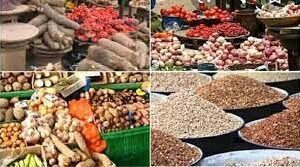The Food and Agriculture Organization of the United Nations (FAO) has warned countries to step up monitoring, reporting and prevention of one of the world’s most destructive banana diseases, Fusarium wilt, which recently spread from Asia to Africa and the Middle East, and which has the potential to affect countries in Latin America.
The TR4 race of the disease, which is also known as Panama disease, is posing a serious threat to production and export of the popular fruit, with serious repercussions for the banana value chain and livelihoods, FAO said in an information brief.
Banana is the eighth most important food crop in the world and the fourth most important food crop among the world’s least-developed countries, according to FAOSTAT, the UN agency’s data-gathering and analysis service.
“Any disease or constraint that affects bananas is striking at an important source of food, livelihoods, employment and government revenues in many tropical countries,” said GianlucaGondolini, Secretary of the World Banana Forum. The Forum, whose Secretariat is based at FAO headquarters, promotes sustainable banana production and trade.
“The spread of Fusarium wilt banana disease could have a significant impact on growers, traders and families who depend on the banana industry,” FazilDusunceli, a plant pathologist at FAO, said. “Countries need to act now if we are to avoid the worst-case scenario, which is massive destruction of much of the world’s banana crop,” said Dusunceli.
At the country level, FAO specifically advises, awareness should be raised at all levels and adoption of appropriate risk assessment, surveillance and early warning systems; implementation of phytosanitary measures to prevent the spread of the disease through agricultural practices, irrigation and drainage systems, transportation, vehicles, containers, tools or visitors; preventive measures, including quarantines, the use of disease-free planting materials, prevention of movement of infected soil and planting materials into and out of farms, and disinfection of vehicles; capacity building in National Plant Protection Organizations (NPPO) in planning, extension and research, including the use of rapid and accurate diagnostic tools; training of technical officers, producers and farm workers in disease identification, prevention and management under field conditions, and appropriate instructions to visitors.
While other races of the disease have existed for many years, TR4 has caused significant losses in banana plantations in Southeast Asia over the last two decades, and has recently been reported in Mozambique and Jordan.
TR4 infects the Cavendish banana varieties, which dominate global trade, as well as other susceptible varieties used for local consumption and markets. Despite damage to the banana plant and to production, the fruit itself remains edible.
FAO’s information note stresses the importance of using disease-free seedlings and avoiding movement of infected soil and planting materials into, and out of, farms, through transportation, visitors or other means.



